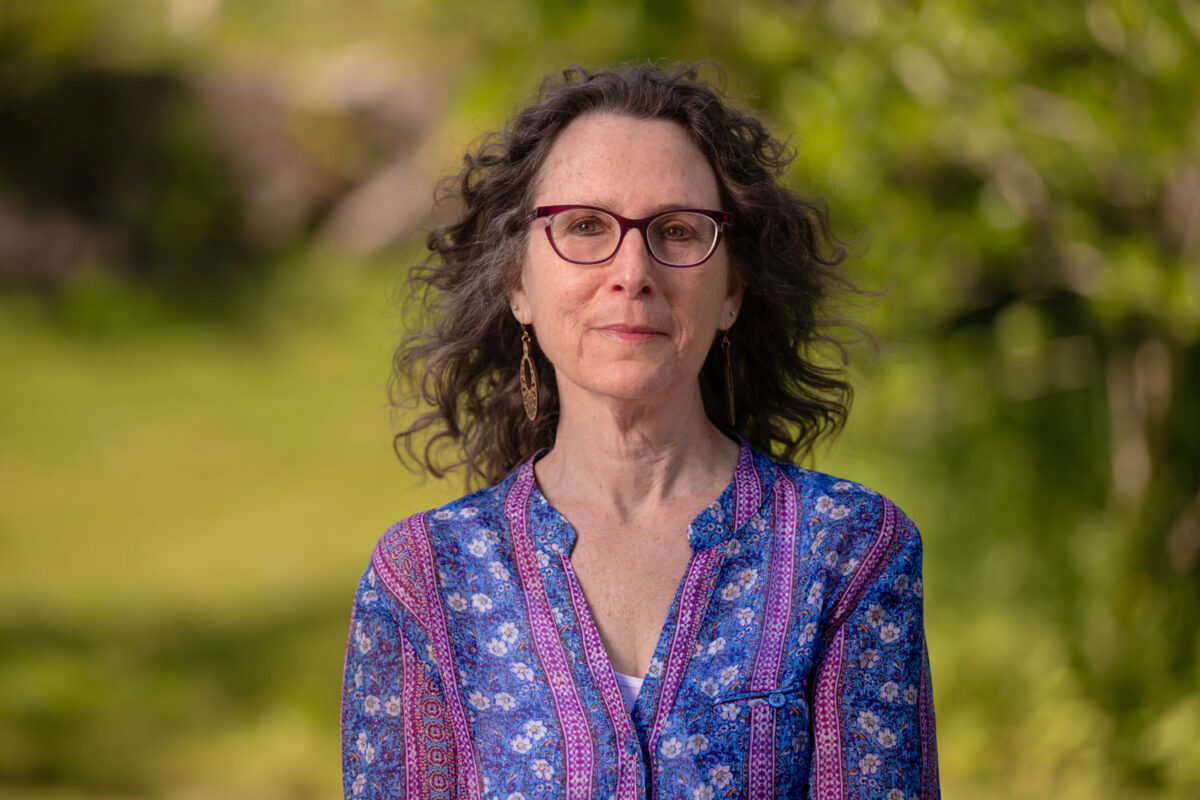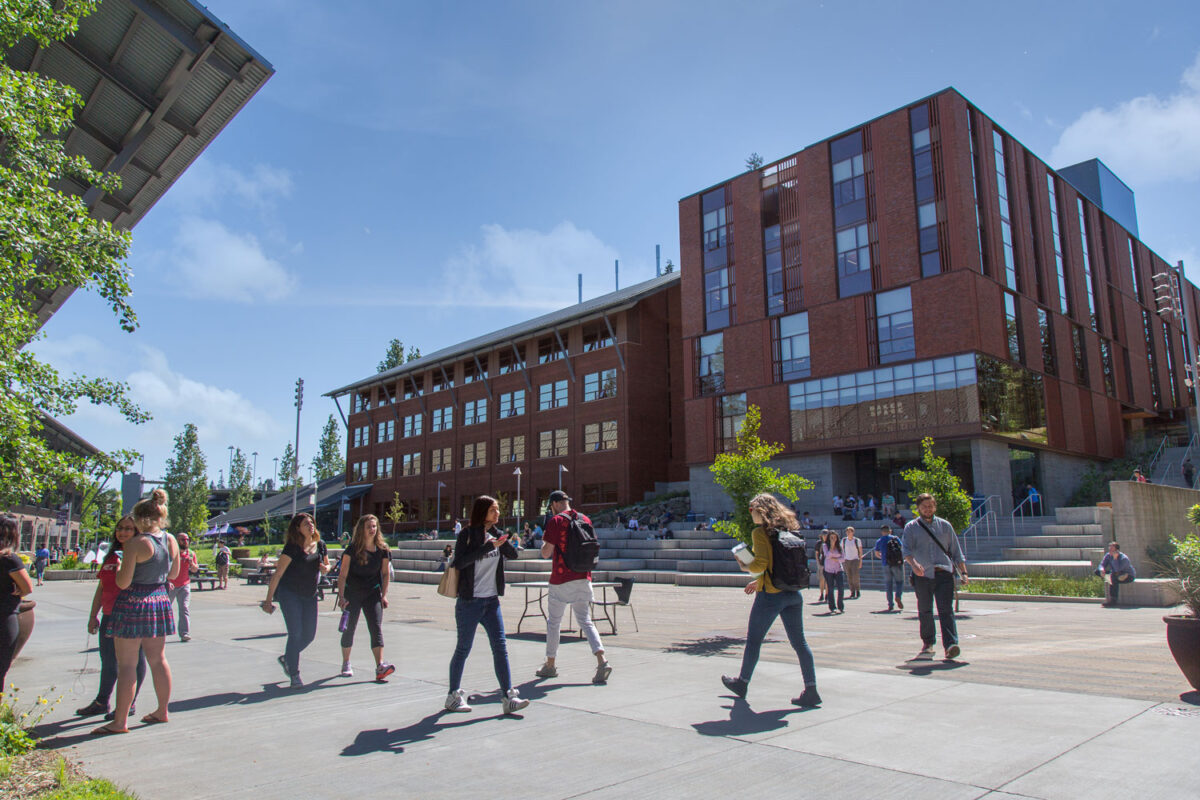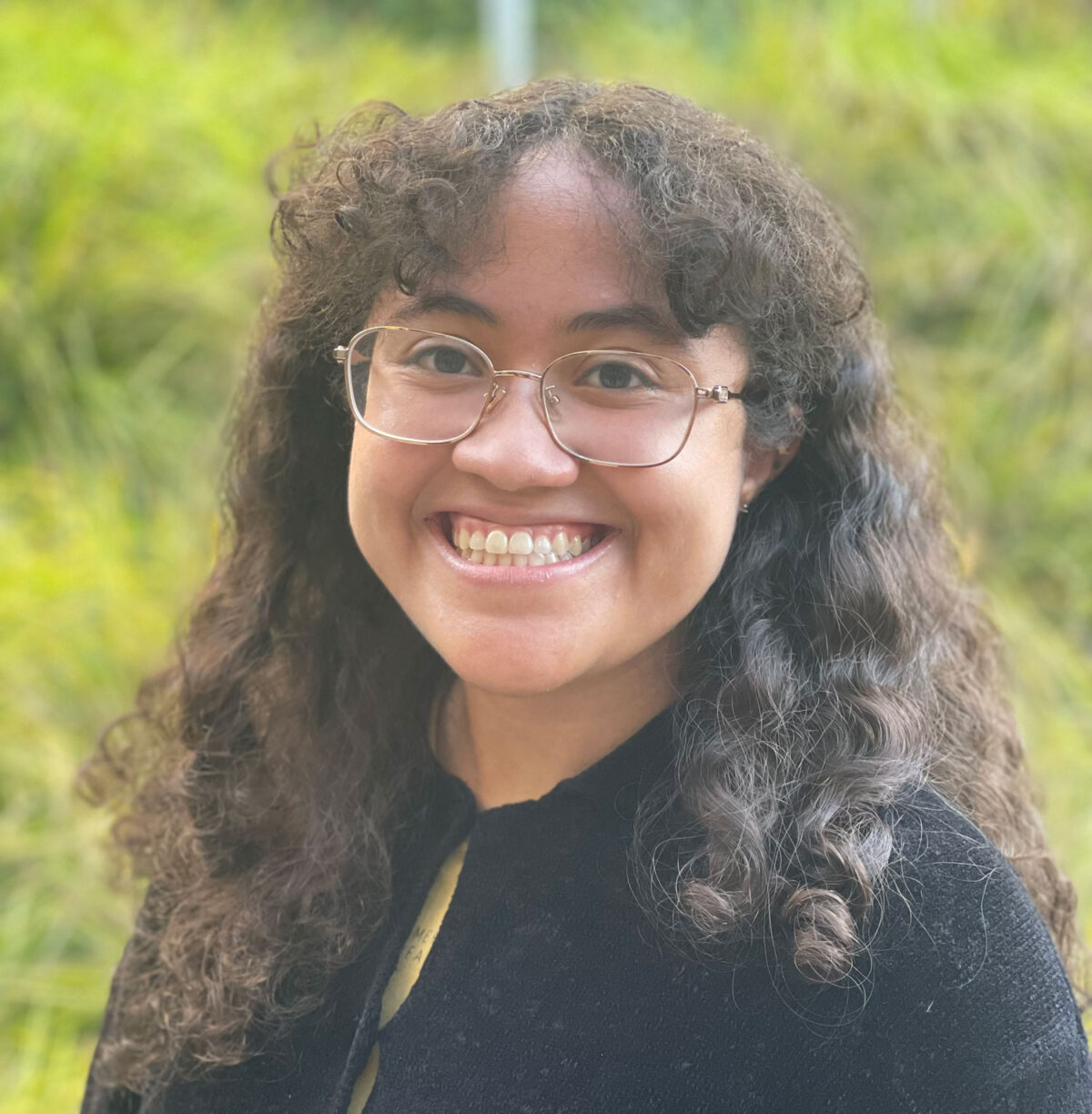How has work in Institutional Research changed since remote operations began at UW Bothell? Adrian Sinkler, director of Institutional Research, answers a few questions from Maria Lamarca Anderson, UW Bothell director of communications.
Q. What would you normally be doing now and where?
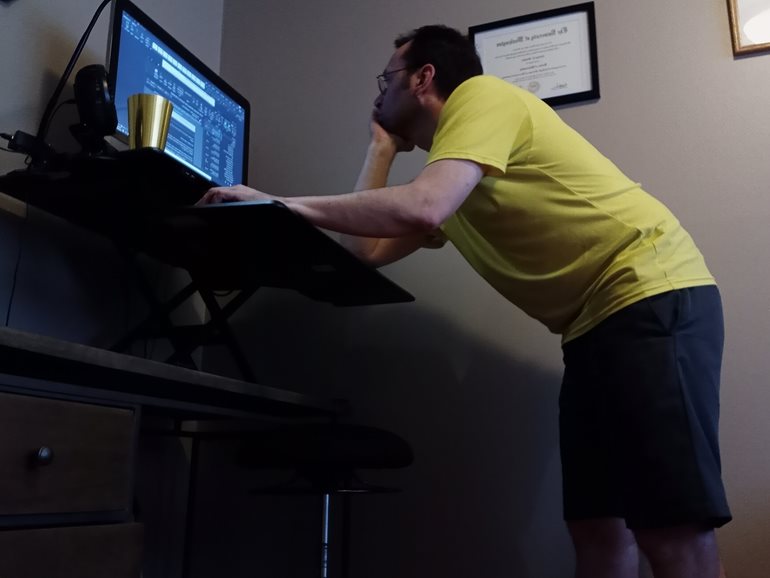
A. Over the past two years, we have been working on data integrations and reports/dashboards that we hope will make it easier for us to provide information to campus stakeholders in a more consistent and automated way. At this point in the year, I review feedback on what we have done during the past year and prepare project plans for the coming year to modify or improve upon what we have done. In that sense, the pandemic has not changed what I do very much, but it has significantly changed the how and where of what I do.
I would normally be meeting with our IR team in the Beardslee Crossing building and having regular face-to-face check-ins throughout a typical workday. Likewise, I would have more frequent face-to-face contact with our great colleagues, contact that facilitates informal socialization and discussion about what our data and analysis needs are for the coming year. The lack of opportunities to engage with people — both in organized meetings and in passing conversation — has given me new insight into just how important these opportunities are for team and community building.
Q. What are you trying to work on today?
A. There are several things we are working on. The most important thing is preparing for our return to campus in the fall. We have learned that we can effectively do a lot of our work remotely. I think we have also learned, however, that our efforts at knowledge transfer, training and project planning are more effective when we have regular opportunities to connect in person. Consequently, we are experimenting with hybrid work arrangements this summer. The goal is to give as much flexibility to our team as possible, so we can achieve the right balance for everyone and still create ample opportunities for all of us to be on campus together.
Friday is my focus day, so I am primarily engaged in planning work that will hopefully make us better at serving campus in the long term. Today, I am creating a filing system that will facilitate code sharing between our office and our IR counterparts in Seattle and Tacoma. The goal of this project is to make it easier for us to leverage the work that others have already completed, so we can minimize the duplication of effort and reach consensus about standard data definitions across all three campuses. I am also working on project plans for two data dashboards that we are modifying over the summer to include more information that our academic deans need for their budgeting and planning efforts.
Q. What adjustments have you made to fulfill your work responsibilities?
A. The adjustment I have made is to adjust as little as possible. What I mean by that is I have tried to keep to my pre-pandemic schedule by getting up at the same time every morning and going through the same routine, sans commute and business-casual attire. I stay on task better when I have a work routine and stick to it. That said, I have learned that it is easier for me to focus if I change up where I work throughout the day, especially when the sun is out. Moving from room to room made me feel less “cooped up” during the height of the pandemic and helped me mitigate the stir craziness we probably all felt from time to time.
Q. What are you doing to care for yourself or for others?
A. Exercise, exercise, exercise! One of the real benefits I have derived from the pandemic is more time to go on morning runs and do my stretching routine during my work breaks. The ability to devote more time to my physical health every day was a crucial part of my coping strategy during the pandemic, and something I hope to continue when we discover our new normal.
I do not have any home care responsibilities at this point in my life, but last summer I built a covered pergola in my back yard to create a place for socializing during the long, rainy, pandemic winter. Having this space with heat and light added provided many opportunities for friends, family and neighbors to congregate safely during the pandemic. Even an introvert like me needs human connection to sustain a healthy mind and attitude and providing this space for people to socialize in person was my small contribution to the health and happiness of others.
Q. Do you have a change of perspective to share?
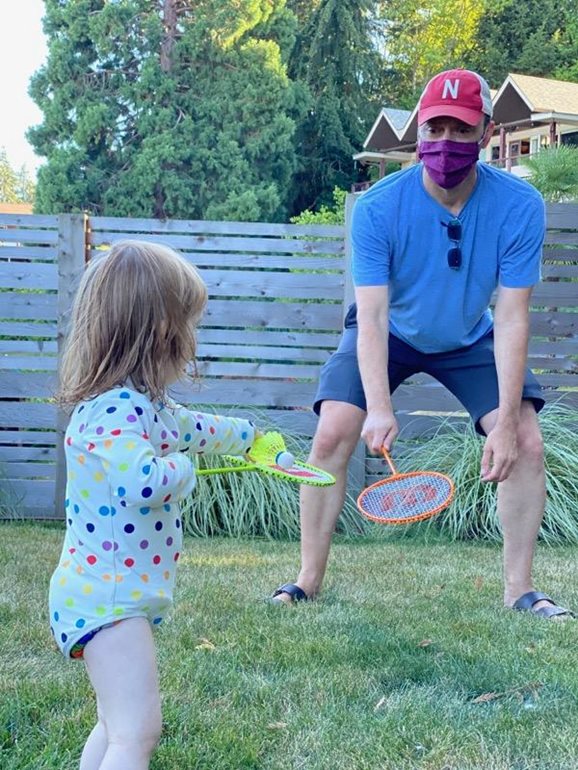
A. I am not sure my perspective has changed, but the pandemic has reinforced some of my perspectives in ways that would not have been possible otherwise. For example, I have always valued time more than any other resource I have. The pandemic took away from me an entire year of watching my niece grow and flourish in person (she is the coolest kid on earth in my not-so-humble opinion). I will never get that year back, but I can redouble my efforts to make time for her in the coming years. I have a renewed sense of urgency about the time I have left on spaceship Earth, and there is no time like the present.
Q. What other thoughts or feelings do you want to share?
A. We need each other to survive as a species, and it is our sources of division that create the ultimate source of neediness — an unwillingness to help one another solve common problems. What this means in practical terms will vary according to circumstances, but at this political moment in our history I think it means we need to do what we can to put aside our ideological affinities and find solutions to our common concerns through compromise and dialogue. My favorite political philosopher, Hannah Arendt, calls this “communicative power,” so I think it fitting that I close with one of her most famous quotes.
”What I propose, therefore, is very simple: it is nothing more than to think what we are doing.”
– Hannah Arendt, The Human Condition (1958)

